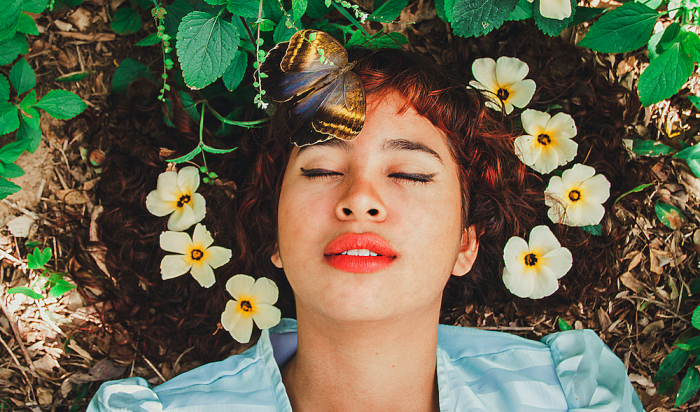Gratitude might just be the most powerful tool we all readily have access to, so why are we not better at being grateful?
By definition, gratitude is the appreciation of what you have or receive, and we all claim to feel our share.
But for most of us, we seem to have lost the art of stopping to smell the proverbial roses. Instead of truly appreciating what we have, we are rushing to the next thing in life—the new job, the next achievement, the bigger house, the better car, the holiday, more money…the list just keeps going. And amidst this busy pursuit of, ah, happiness, we can forget to acknowledge our full hands of blessings.
In a gratitude survey conducted by Berkeley University in 2012, it showed that whilst up to 90 percent of people described themselves as grateful, only 44/52 percent (men versus women) expressed gratitude on a regular basis.
Science continues to reveal the enormous benefits of gratitude, both emotional and physical. Aside from the greatest by-product of simply being happier in day-to-day life, thankfulness can physically reduce our blood pressure, lower stress, and increase our immunity.
Additionally, “A five-minute a day gratitude journal can increase your long-term well-being by more than 10 percent. That’s the same impact as doubling your income!” (Happier Human).
With stats like this, why are we not better at being grateful?
Well, scientifically speaking, it’s because our minds get used to stuff. When good things happen, we feel positive emotions and we believe the more good things we get, the more awesome it will be.
Right?
Wrong.
According to the psychological phenomenon of hedonic adaptation, our minds get accustomed to the new things until they become the new normal, and as a result we reset our reference points. Put simply, the new stuff doesn’t work as well over time. The “happiness” wears off and we want more. We start looking for the next new thing. And so it goes.
Being grateful also requires intentional actions. It’s not enough to have a predisposition to experience gratitude or to only feel appreciation when something positive happens to you. True gratitude is a learned practice that develops with consistency.
Although there are many reports on the positive effects of gratitude, research is still somewhat in its early days. But given that Yale University’s most popular course of all time is about psychology and the science of gratitude, it’s certainly a subject we all want to know more about.
My interest on the subject of gratitude was sparked when I hit a low in my life. I suddenly found myself in an empty emotional space and wasn’t really sure how to fill it.
I noticed what seemed to be a gratitude movement emerging on social media (which is ironic when it’s quite possibly where it disappeared to in the first place), with people “promoting” their gratitude for something or someone in their life. So many motivational speakers and inspirational quotes started emerging around the globe promising that gratitude was the way to fulfillment.
It sounded like a good idea, so I set myself a challenge to create a visual gratitude diary for a year.
Consciously looking to notice something positive every day for 365 days was, initially, effortful. But once I found my gratitude groove, it proved to be my year of exponential spiritual growth. My energy overflowed—with clarity, with softness, with kindness. With a new inner peace and strength that had faded away many years before.
Did it change my life? Absolutely.
So much so that I went on to study the science of well-being through Yale University to learn more about the psychology of gratitude, and I published a guided journal to help others find this same enlightenment.
Being grateful is a universal human attribute that transcends all cultures and social echelons—rich or poor, black or white, successful or still trying to work it out. “Gratitude, in this profound sense, is not simply a mere attitude, a deep feeling, or even a desirable virtue,” wrote Professor of Psychology Robert Emmons. “It is as elemental as life itself.”
So how can we be more grateful? Experts say the best way to experience authentic gratitude is to slow down and start savouring, and the most effective way to do this is by journaling.
Whether you’re trying to heal a hurt or just wanting to inject more grace into your life, showing appreciation for a single blessing is the best place to start. If you dig deep enough, I would argue that everyone could find at least one thing to be grateful for.
It starts with a day, then a week, which turns into a month, and, before you know it, you are well into creating a better, more grateful you.
So the next time you find yourself speeding through life chasing the NBT (next big thing), take a moment to reflect on Aesop’s wisdom: “Gratitude turns what we have into enough.”
~
~











Read 0 comments and reply